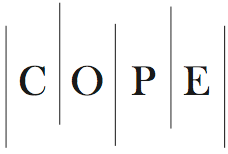About World Electric Vehicle Journal
Aims
The World Electric Vehicle Journal (ISSN 2032-6653) is the first peer-reviewed international scientific journal that comprehensively covers all studies related to battery, hybrid, and fuel cell electric vehicles.
Responding to demands from academia, this journal is intended to complement the International Electric Vehicle Symposium and Exhibition (EVS). Since its inception in 1969, the International Electric Vehicle Symposium and Exhibition (EVS) series has been at the forefront of e-mobility and has grown to become the largest and most prominent global event in the electric vehicle industry, academia and research, showcasing current and emerging technologies both in the market and under development.
The EVS is hosted by the World Electric Vehicle Association (WEVA), which consists of the Electric Drive Transportation Association (EDTA) in North America, the European Association for Electromobility (AVERE) in Europe and the Electric Vehicle Association of the Asia Pacific (EVAAP) in Asia Pacific, organizing the EVS in their region in turn.
The World Electric Vehicle Journal is the primary scientific journal serving the interests of the scientific international electric vehicle community.
Scope
The main topics of this journal include, but are not limited to:
- Vehicle and Transportation Systems
A-1. Electric Vehicles
A-2. Plug-in Hybrid Vehicles
A-3. Hybrid Electric Vehicles
A-4. Fuel Cell Electric Vehicles
A-5. Heavy Duty Electric Vehicles and Buses
A-6. Light Electric Vehicles and Personal Mobility
A-7. Electric Two- and Three-Wheelers
A-8. Welfare and Senior Electric Vehicles
A-9. Off-Road and Industrial Electric Vehicles
A-10. Railway Vehicles
A-11. Electric Ships and Airplanes - Electric Autonomous and Connected Vehicles
B-1. AI—Artificial Intelligence for EVs
B-2. Intelligent Transportation System for EVs
B-3. Autonomous xEV
B-4. V2V, V2I (Infrastructure), and V2P (Persons) Communication
B-5. Electric Autonomous Vehicle Traffic Management
B-6. Electric Autonomous Vehicle Safety and Security
B-7. Shared Transportation
B-8. Cybersecurity - Charging Infrastructure and Grid Integration
C-1. AC and DC Charging Technology
C-2. Smart Charging
C-3. V2H and V2G
C-4. Smart Grid Integration and Grid Management
C-5. Fast Charging Infrastructure
C-6. Inductive/Wireless Power Transfer
C-7. Optimal Charging Locations - Marketing and Promotion
D-1. Public Policy and Promotion
D-2. Consumer Behaviour
D-3. Consumer Demand
D-4. Trends and Forecasting of E-mobility
D-5. Business Models for Vehicle Sales
D-6. Supply and Value Chain
D-7. Charging Business Models
D-8. Retrofitting EVs
D-9. International Networking
D-10. Standardization
D-11. Education - Storage Systems
E-1. Batteries
E-2. Battery Management Systems
E-3. Super Capacitors
E-4. Energy Storage Systems
E-5. Fuel Cell Systems - Propulsion Systems and Components
F-1. Drive and Propulsion Systems
F-2. Electric Motor Drive
F-3. Electric Machine
F-4. Auxiliary Components and Sensors
F-5. Vehicle Motion and Stability Control
F-6. Chassis Systems for EVs - Power Electronics Components
G-1. Power Electronics Systems
G-2. Power Semiconductor Devices and Highly Integrated Modules
G-3. Wide Band Gap Devices and Related Issues
G-4. Packaging, Cooling, and Heat Transfer
G-5. Magnetics, Capacitors, Bus Bars, and 3D Integrations
G-6. Sensors for Motors and Converters
G-7. Harnesses, Connectors, and Protection/Distribution Devices
G-8. Electromagnetic Compatibility - Electric Vehicle management
H-1. Modelling and Simulation
H-2. Measuring Methods and Equipment
H-3. Energy Management
H-4. Thermal Management
H-5. Advanced Control of EVs
H-6. Human–Machine/Computer Interactions
H-7. Vehicle Cloud and Digital Twin - Energy Supply and Sustainability
I-1. Environmental Impact
I-2. Climate Change
I-3. Recycling and Re-use
I-4. Life Cycle Analysis
I-5. Sustainable Energy
I-6. Health and Safety Considerations
I-7. Social Equity - Manufacturing
J-1. Battery Manufacturing
J-2. Vehicle Manufacturing
J-3. Design for Second Life
J-4. Mega Factories
J-5. Mining
J-6. Materials for EVs
MDPI Publication Ethics Statement
 MDPI is a member of the Committee on Publication Ethics (COPE).
MDPI takes the responsibility to enforce a rigorous peer-review together with strict ethical policies and standards to ensure to add
high quality scientific works to the field of scholarly publication. Unfortunately, cases of plagiarism, data falsification, inappropriate
authorship credit, and the like, do arise. MDPI takes such publishing ethics issues very seriously and our editors are trained to proceed in
such cases with a zero tolerance policy. To verify the originality of content submitted to our journals, we use iThenticate to check submissions against previous publications.
MDPI is a member of the Committee on Publication Ethics (COPE).
MDPI takes the responsibility to enforce a rigorous peer-review together with strict ethical policies and standards to ensure to add
high quality scientific works to the field of scholarly publication. Unfortunately, cases of plagiarism, data falsification, inappropriate
authorship credit, and the like, do arise. MDPI takes such publishing ethics issues very seriously and our editors are trained to proceed in
such cases with a zero tolerance policy. To verify the originality of content submitted to our journals, we use iThenticate to check submissions against previous publications.
Book Reviews
Authors and publishers are encouraged to send review copies of their recent related books to the following address. Received books will be listed as Books Received within the journal's News & Announcements section.
MDPI
St. Alban-Anlage 66
CH-4052 Basel
Switzerland
Copyright / Open Access
Articles published in WEVJ will be Open-Access articles distributed under the terms and conditions of the Creative Commons Attribution License (CC BY). The copyright is retained by the author(s). MDPI will insert the following note at the end of the published text:
Reprints may be ordered. Please contact for more information on how to order reprints. Announcements regarding academic activities such as conferences are published for free in the News & Announcements section of the journal. Advertisement can be either published or placed on the pertinent website. Contact e-mail address is .Reprints
Announcement and Advertisement
Editorial Office
Contact usFor further MDPI contacts, see here.




